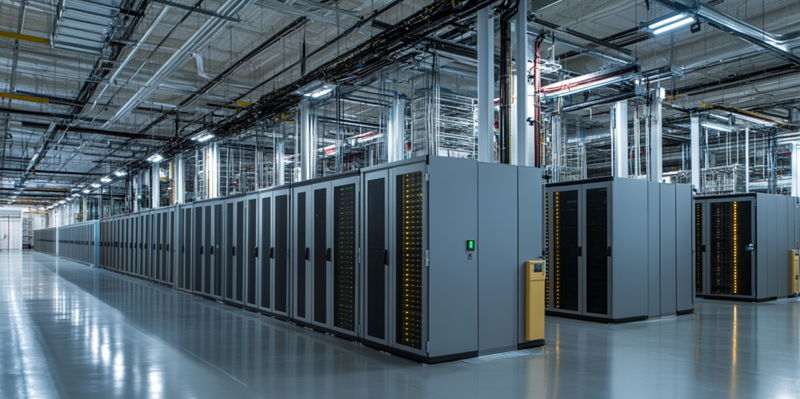Equinix, a key player in the data center industry, experienced a notable drop in pre-tax profits in its Irish arm over the past year, despite achieving a robust increase in revenues. The company operates multiple facilities in Dublin and 260 data centers worldwide, serving major technology clients like Oracle, Nvidia, Google Cloud, Netflix, Dell Technologies, AWS, and Zoom.
Financial Performance
Last year, Equinix (Ireland) Ltd saw its pre-tax profits more than halve to €7.86 million, a stark contrast to its revenue increase of 33%, growing from €48.9 million to €65.2 million. This decline in profits was primarily driven by a significant rise in the cost of sales, which escalated from €22.7 million to €46.82 million, effectively reducing the gross profit margin to 28%. The higher commission expenses played a crucial part in this reduction.
Operational Expansion
Equinix continued its expansion strategy in Ireland, purchasing a new building at Kilcarbery Business Park for €7 million, plus additional transaction costs of €550,000. The directors pointed out strong demand for premium data center capacity, driven by increasing internet traffic and the rising power and cooling needs associated with the expanding computing requirements of the financial services sector. Furthermore, the growth of cloud computing and software as a service (SaaS) continues to fuel this demand. The directors asserted that despite high capital costs, the data center market remains robust.
Workforce Growth
Employment at Equinix (Ireland) Ltd increased significantly, with the number of employees rising from 64 to 92. The workforce comprises 70 engineering and technical staff, 19 in sales and administration, and three directors. This rise in headcount led to an increase in staff costs from €10.11 million to €11.98 million. Directors received total compensation amounting to €273,000.
Risk Mitigation Strategies
The company identified potential risks related to electricity supply, acknowledging the possibility that electricity providers could struggle to meet the required capacity for further expansion. To address this, Equinix engages in long-term planning with electricity providers and has established a task force to explore options for reducing primary energy consumption.
Conclusion
Equinix has experienced a surprising downturn in pre-tax profits within its Irish operations over the past year. This occurred despite the company’s impressive revenue growth. Equinix manages several facilities in Dublin and operates a total of 260 data centers across the globe. Their extensive network serves top-tier technology clients including Oracle, Nvidia, Google Cloud, Netflix, Dell Technologies, AWS, and Zoom. The drop in pre-tax profits is an unexpected twist for a company often regarded as a leader in its field. While revenues have surged, proving the demand for their services, the decline in pre-tax profits suggests potential challenges or increased expenditures that might need addressing. Given Equinix’s crucial role in supporting major technology firms, this development invites further scrutiny and analysis to understand the root causes and foresee possible impacts on their market positioning and future financial health.

